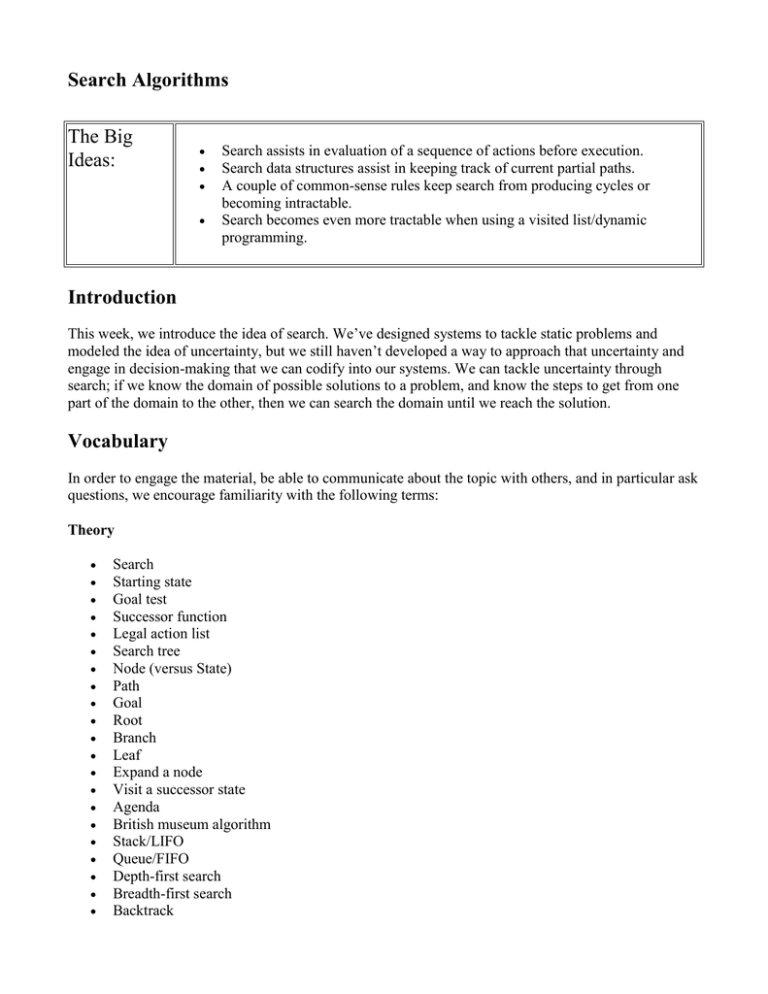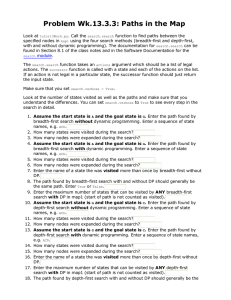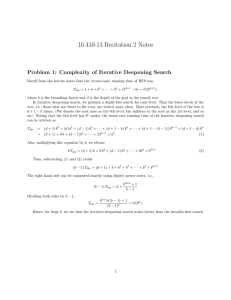Search Algorithms The Big Ideas:
advertisement

Search Algorithms The Big Ideas: Search assists in evaluation of a sequence of actions before execution. Search data structures assist in keeping track of current partial paths. A couple of common-sense rules keep search from producing cycles or becoming intractable. Search becomes even more tractable when using a visited list/dynamic programming. Introduction This week, we introduce the idea of search. We’ve designed systems to tackle static problems and modeled the idea of uncertainty, but we still haven’t developed a way to approach that uncertainty and engage in decision-making that we can codify into our systems. We can tackle uncertainty through search; if we know the domain of possible solutions to a problem, and know the steps to get from one part of the domain to the other, then we can search the domain until we reach the solution. Vocabulary In order to engage the material, be able to communicate about the topic with others, and in particular ask questions, we encourage familiarity with the following terms: Theory Search Starting state Goal test Successor function Legal action list Search tree Node (versus State) Path Goal Root Branch Leaf Expand a node Visit a successor state Agenda British museum algorithm Stack/LIFO Queue/FIFO Depth-first search Breadth-first search Backtrack Dynamic Programming Practice Search ucSearch Check Yourself Theory: you should understand: Motivation for systematic search The relationship between the agenda and different search techniques The two basic rules for improving search, and why they’re necessary How dynamic programming further improves search Practice: you should be able to: Identify the order in which nodes are visited and expanded as a consequence of running a particular search algorithm. Count the number of nodes visited and expanded as a consequence of running a particular search algorithm. Resources Theory: Chapter 8 of the 6.01 Course Notes is the official assigned reading for this week. In particular, the latter half concerning State Estimation is relevant to this week’s assignments. Practice: The 6.01 Software Documentation will come in handy, in particular the module search. MIT OpenCourseWare http://ocw.mit.edu 6.01SC Introduction to Electrical Engineering and Computer Science Spring 2011 For information about citing these materials or our Terms of Use, visit: http://ocw.mit.edu/terms.








